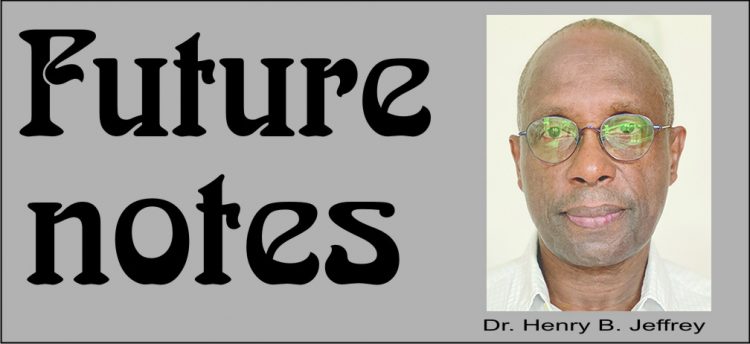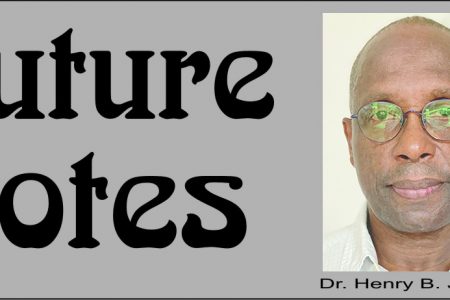
A ding-dong political struggle portends
In considering the 2020 US State Department Country Reports on Human Rights Practices in Guyana I discerned three inclusions that in the present context are worthy of comment.

In considering the 2020 US State Department Country Reports on Human Rights Practices in Guyana I discerned three inclusions that in the present context are worthy of comment.
During the recent fracas in the National Assembly, Minister of Labour Joseph Hamilton is said to have taunted the opposition by asking them what they had done for Africans during their term of office.

Every so often one comes upon a set of events that underline both the possibilities and the tragedy that is Guyana.
International elections observation, which was largely unknown before the 1960s, has grown into such a substantial international norm that it would be impossible for small countries, particularly ones with a controversial electoral history such as Guyana, to avoid their participation in their elections process.

National security is the raison d’être of the state, i.e. the reason for its existence.
In the previous column I explained that these articles on Forbes Burnham are from a talk I gave to a PNCR confab on his contemporary relevance and are grounded in my wish to find a political narrative, devoid of excessive bias that could contribute to Guyana’s elusive struggle for national unity.
Linden Forbes Sampson Burnham was born on 20th February 1923, helped to form the PPP in 1950, left the PPP in 1955 and formed the People’s National Congress (PNC) in 1958, became premier/prime minister in 1964, president in 1980 and died on 6th August 1985.

Every so often there is the demand for the establishment of a truth and reconciliation commission (TRC), a transitional justice-type organisation, to help quell the ethnic divisions in Guyana.

There must be many of us in the Caribbean who in consideration of some matter or other have had some lyrics of Robert Nesta Marley (6th February 1945 to 11th May 1981) spring to mind.
President Irfaan Ali has in common with Opposition Leader Joseph Harmon the fact that he holds his present position as a result of an extremely non-transparent process with which substantial sections of his party apparatchiks were uncomfortable.

Given our highly politicized climate, this is only going to be seen as a tainted process.
‘(The) dominant political elements in Guyana and the resulting reality (is) that governments tend to prefer to have in place not neutral or neutered public servants but those who are among their enthusiastic and active supporters.

Whether an election has been fraudulent or not cannot be determined by means of persistent bluster, propaganda and definitely not insurrection.
On New Year’s Day 2021, Eusi Kwayana, commenting on what he appeared to have considered some rather outlandish exaggerations emanating from the government, recommended that equal time on the state media ‘should be offered as early as possible to the official representatives of the previous coalition government to respond as it sees fit, and is inclined to do to the indictment placed into the public arena by the Honourable Minister of Finance on December 29, 2020.

In a comment on last week’s Future Notes, Mr. Mike Persaud said, ‘we need a Constitutional Reform idea that would trend or move the people away from this over-racialized politics’, and then asked ‘Any ideas on this question, … Jeffrey?’
Over the years, even after the 2000 revision of the Constitution that resulted from widespread consultation, many people have still been demanding root and branch reforms of what they call the ‘illegitimate 1980 Burnham Constitution’.

(This is my presentation to the National Conversation on Ethnic Relations 14th & 15th December, 2020) Chairperson, members of the Ethnic Relations Commission (ERC), ladies and gentlemen.
With the recent discovery of significant hydro carbon resources in Guyana its citizens have been encouraged, particularly by politicians, to believe that their standard of life will substantially improve.

‘Dual citizenship is attractive for many reasons, but there are times when it simply should not be tolerated.
Last week I argued that since the transfer of government to the People’s Progressive Party/Civic (PPP/C) after the March 2020 elections, both it and A Partnership for National Unity+Alliance for Change (APNU+AFC) have been promising constitutional and electoral reforms to prevent a repeat of the allegedly criminal events associated with attempts to manipulate those elections.
The ePaper edition, on the Web & in stores for Android, iPhone & iPad.
Included free with your web subscription. Learn more.